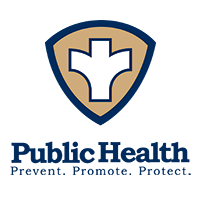News & Information
Please select a year.
National Infant Immunization Week April 16-23, 2016
Office of Public Health Nursing committed to the critical role vaccination plays in protecting the children, community, and public health of Sussex County.
National Infant Immunization Week (NIIW) is an annual observance to highlight the importance of protecting infants from vaccine-preventable diseases and celebrate the achievements of immunization programs and their partners in promoting healthy communities.
Vaccinating on Time is Important for Disease Protection
Parents agree that feeding and sleep schedules are important to help keep their children healthy. The same goes for childhood immunizations. Vaccinating children on time is the best way to protect them against 14 serious and potentially deadly diseases before the second birthday.
According to the Centers for Disease Control, public health and medical experts base their vaccine recommendations on many factors. They study information about diseases and vaccines very carefully to decide which vaccines children should get and when they should get them for best protection.
Although the number of vaccines a child needs in the first two years may seem like a lot, doctors know a great deal about the human immune system. They know that a healthy baby's immune system can handle getting all vaccines when they are recommended. Dr. Schuchat cautions against parents delaying vaccination. "There is no known benefit to delaying vaccination. In fact, it puts babies at risk of getting sick because they are left vulnerable to catch serious diseases during the time they are not protected by vaccines."
When parents choose not to vaccinate or to follow a delayed schedule, children are left unprotected against diseases that still circulate in this country, like measles and whooping cough. For example, more than 48,000 cases of whooping cough were reported in the United States in 2012. During that time, 20 deaths had been reported—the majority of these deaths were in children younger than 3 months of age.
In 2015, 189 people from 24 states and the District of Columbia were reported to have measles. In 2014, the United States experienced a record number of measles cases, with 667 cases from 27 states reported to CDC's National Center for Immunization and Respiratory Diseases (NCIRD); this is the greatest number of cases since measles elimination was documented in the U.S. in 2000. The majority of people who got measles were unvaccinated. Staying on track with the immunization schedule ensures that children have the best protection against diseases like these by age two.
Parents who are concerned about the number of shots given at one time can reduce the number given at a visit by using the flexibility built into the recommended immunization schedule. For example, the third dose of hepatitis B vaccine can be given at 6 through 18 months of age. Parents can work with their child's healthcare professional to have their child get this dose at any time during that age range.
"I make sure my kids are vaccinated on time," said Dr. Andrew Kroger, medical officer, NCIRD, and father of two. "Getting children all the vaccines they need by age two is one of the best things parents can do to help keep their children safe and healthy."
The Office of Public Health Nursing offers free vaccine for children from infancy to 5 years old, and to school aged children who have no insurance. For more information call us at 973-579-0570.
If you have questions about the childhood immunization schedule, talk with your child's doctor or nurse. For more information about vaccines, go to www.cdc.gov/vaccines/parents  .
.



